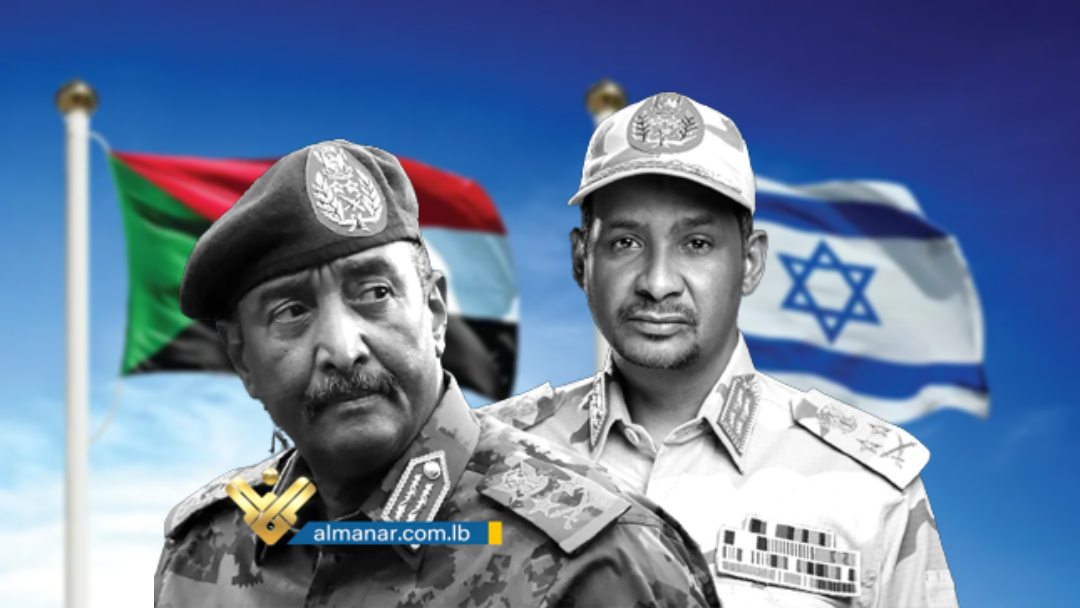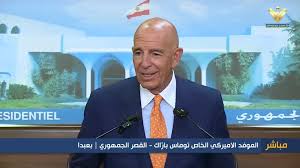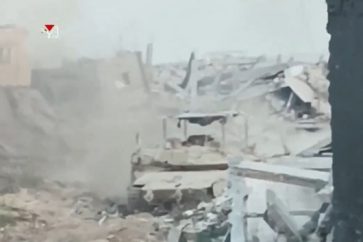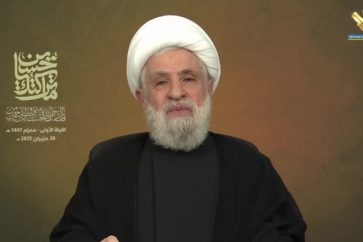Ali Alaaddine*
Translated by Areej Fatima Al-Husseini
Since the summit known as the Three Noes in Khartoum in 1967 (no peace, no recognition, and no negotiation), Sudan has been a strategic goal for the Zionist ‘temporary entity’*. The Israeli regime has always attempted to forge ties with this country due to its economic and water resources, as well as its vast borders with several African and Arab countries, particularly Egypt. In addition, to draw attention away from Sudan’s regional and national challenges, notably the Palestinian struggle, the Zionist entity aimed to undermine and divide the country’s internal concerns.
Greedy Zionist Goals in Sudan
The Israeli occupation entity believed that strengthening ties with Sudan and the African continent would give it a route out of being isolated from the Arab region. Yet, the Zionist agenda for international relations changed from opening the doors to its surroundings to the goal of safeguarding it from external hazards with the signature of the so-called Abraham Accords – with the UAE, Bahrain, and Morocco – as well as discussions of crafting an agreement with Saudi Arabia.
“The accord is precarious, but if it is put into effect, it will strengthen Israel’s authority over the Red Sea and Africa and permit It to establish diplomatic ties with other Muslim countries in Africa.”
February 2023, Zionist National Security Research Institute
Through constructing a naval base, military airports, surveillance and early warning systems, or a missile defense network against marches, Sudan has evolved into an alternative strategic platform for the creation of a Zionist defensive infrastructure on its lands and seas. Also, any foreign naval force that manages to secure military bases on the Sudanese coast will have the ability to endanger Yemeni maritime navigation in addition to Iranian maritime navigation across the Red Sea.
In the same context, the airports in Sudan, if utilized by the Zionist Air Force, will allow it to strike Egypt, Yemen, Libya, Tunisia, and Mali, among other African countries.
A Military-Supporting Entity
Following the second coup which saw the topple of Omar al-Bashir, the “Sovereignty Council” took power in Sudan, only to return to division, which led to the overthrow of civil currents and the government of Abdullah Hamdok. Since then, Zionist stances became public, demonstrating the entity’s interference in what is happening.
On 11/02/2021, Walla’s political journalist Barak Ravid, spoke about the extensive Zionist movement and activities in Sudan, particularly the Mossad.
Ravid said that the ‘temporary entity’ backs the military wing of the Sudanese Sovereignty Council and that it had a part in the tensions that arose at the time between Abdel Fattah al-Burhan’s side and Prime Minister Abdullah Hamdok.
“What is happening in Sudan should be examined. Through the Mossad, the National Security Council, and the Ministry of Foreign Affairs, Israel was involved in what was transpiring there. It also unambiguously supports the military, since Al-Burhan’s deputy, Sudan’s second man, Muhammad Hamdan Dagalo, “Hamidti,” cooperates with Mossad and works openly with him”, he stated.

‘Israel’ Immersed in the Conflict
The Zionist entity entered the midst of Sudan’s raging conflict between the army and the Rapid Support Forces, not out of concern for Sudan and its people from the scourge of civil war and the destruction of Sudan. Rather, it is out of concern for the normalization agreement, which the entity recognizes will not be achieved in the face of a raging war. Furthermore, preserving its interests entails achieving full normalization with Sudan, which ‘Israel’ fears that it will be halted due to the country’s fighting.
Eli Cohen, the Zionist Foreign Minister, had visited Khartoum in early February and met with Al-Burhan before announcing the last touches to the wording of a “peace agreement” between the two countries. This deal was supposed to be signed this year, following the transition of power to a civilian administration.
“The peace agreement between Israel and Sudan would improve regional stability and enhance Israel’s national security.“
Eli Cohen, Zionist Foreign Minister – February 2023
In this regard, “Axios” revealed that the occupation had established contact with the two sides in Sudan’s dispute, the army commander, Abdel Fattah Al-Burhan, and the commander of the Rapid Support Forces, Muhammad Hamdan Daglo, “Hamidti,” to broker a cease-fire.
The American website also cited three Zionist officials who claimed that “Tel Aviv is using its ties with army leaders and the Rapid Support Forces to stop the fighting,” noting that Tel Aviv’s relationships with Al-Burhan and Hamidti over the course of the previous three years allowed it to mediate between the two warring parties.
The officials further stated that interaction with Al-Burhan’s side was taken over by the occupation’s Ministry of Foreign Affairs. Whereas, Hemedti’s communications were handled by Mossad, the foreign intelligence agency.
In response, the Hebrew newspaper Yedioth Ahronoth confirmed the same interactions, stating that the interim entity is attempting to restore peace by engaging with all sides of the military conflicts that have erupted in Sudan.
According to a source, the Israeli Ministry of Foreign Affairs and Mossad are in communication with Al-Burhan and Hamidti and are attempting to send signals of calm. As per the daily “Israel Hayom,” “representatives of Al-Burhan and his opponent, Hamidti, have made contacts with Israel in the last two days, in the aftermath of the outbreak of confrontations.” It went on to say that officials of the occupying entity urged the two warring Sudanese groups to halt the violence and restore peace.
In a comparable context, demonstrates the degree of Zionist reconciliation with warring parties. Youssef Ezzat, the political advisor to the commander of Sudanese “Rapid Support” Forces led by Muhammad Hamdan Dagalo “Hemedti,” gave an interview to a Hebrew channel about the developments of armed clashes with the Sudanese army, in which he stated that Hemedti is fighting extremists led by Al-Burhan.
“The operation we are engaged in is broad, and many parties sponsored by the extremist organization are involved,” Ezzat said in an interview with the Hebrew station i24.
“We detained foreign fighters with anonymous identities and who served as snipers with Abdel Fattah al-Burhan. We fully adhered to the armistice,” he said. “But we were caught off guard by a naval attack in northern Kafouri, and we were attacked by drones and direct strikes. Further, we announced the truce to be humanitarian, but when we opened the East Nile Bridge, we were attacked from all sides and confronted them”, Ezzat added.
In summary, the Zionist entity realizes that a full normalization agreement between ‘Israel’ and Sudan would not be achievable until the end of the internal conflict, contrary to prior Zionist projections that the deal could be signed without transitioning to civilian control. Such conclusion clarifies what first drove the entity to back Abdel Fattah Al-Burhan and depose Abdullah Hamdok and the civil currents.
However, the Zionist entity won’t rush to sign a normalization agreement with Sudan, despite the Israeli need for it. For the Zionist entity. According to ‘Israel’, impovirished and chaotic Sudan is much better than a powerful state capable of opposing the Zionist goals.
*Ali Alaaddine writes for Al-Manar on Hebrew affairs
*Hezbollah Secretary General Sayyed Hassan Nasrallah frequently refers to ‘Israel’ as the temporary entity
Source: Al-Manar Website




